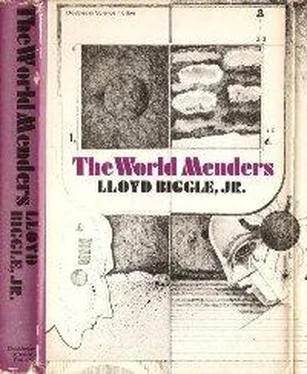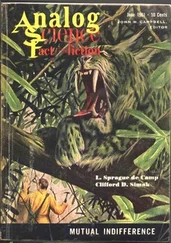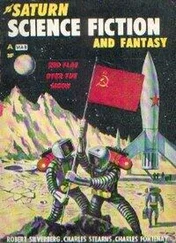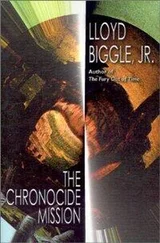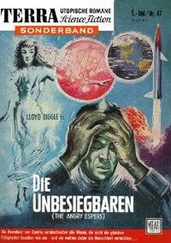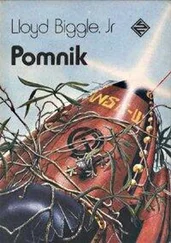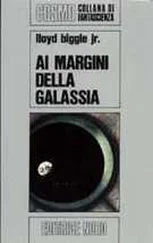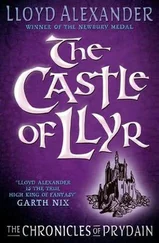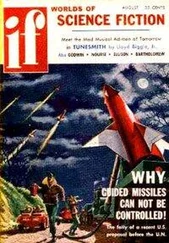Lloyd Biggle Jr. - The World Menders
Здесь есть возможность читать онлайн «Lloyd Biggle Jr. - The World Menders» весь текст электронной книги совершенно бесплатно (целиком полную версию без сокращений). В некоторых случаях можно слушать аудио, скачать через торрент в формате fb2 и присутствует краткое содержание. Год выпуска: 1971, Издательство: Doubleday, Жанр: Фантастика и фэнтези, на английском языке. Описание произведения, (предисловие) а так же отзывы посетителей доступны на портале библиотеки ЛибКат.
- Название:The World Menders
- Автор:
- Издательство:Doubleday
- Жанр:
- Год:1971
- ISBN:нет данных
- Рейтинг книги:5 / 5. Голосов: 1
-
Избранное:Добавить в избранное
- Отзывы:
-
Ваша оценка:
- 100
- 1
- 2
- 3
- 4
- 5
The World Menders: краткое содержание, описание и аннотация
Предлагаем к чтению аннотацию, описание, краткое содержание или предисловие (зависит от того, что написал сам автор книги «The World Menders»). Если вы не нашли необходимую информацию о книге — напишите в комментариях, мы постараемся отыскать её.
The World Menders — читать онлайн бесплатно полную книгу (весь текст) целиком
Ниже представлен текст книги, разбитый по страницам. Система сохранения места последней прочитанной страницы, позволяет с удобством читать онлайн бесплатно книгу «The World Menders», без необходимости каждый раз заново искать на чём Вы остановились. Поставьте закладку, и сможете в любой момент перейти на страницу, на которой закончили чтение.
Интервал:
Закладка:
Farrari ignored him. His eyes were fixed admiringly on the image of the old kru. “That’s the trouble with great art,” he observed in the confident tones of a lecturer at the CS Academy. “The more realistic it is, the more it goes beyond realism. We couldn’t begin to match the expressiveness this sculptor achieved. He’s represented a cruel, self-centered old man and made him seem like a god. The dissipation in his face takes on a hallowed aspect. I wonder if the artist really believed in what he was doing, or if he was just more skilled than any artist has a right to be. We couldn’t match this expressiveness, but absolute realism may be an adequate substitute. Care to nominate anyone for kru?”
Jorrul left the room and returned with an armload of manuals. He began leafing through them, checking reference after reference. When finally he pushed them aside he seemed amused and at the same time perplexed.
“There isn’t anything in the regulations to cover it,” he admitted.
“I didn’t see how there could he,” Farrari said.
“The instructions about tampering with a religion are explicit enough: don’t. Whether or not what you’re proposing could really be called tampering is moot, but if your substitute portrait approximated the style of art they’re accustomed to, we could consider the switch a mere act of politics. I have five volumes about tampering with technology—they can be summarized with the same word, don’t—but this notion of yours doesn’t technically concern either religion or technology.”
“Of course not,” Farrari said. “It concerns technography.”
Jorrul turned again to his manuals and after a few minutes announced, “I can’t find a reference to that. How long would it take you to make a portrait?”
“A couple of hours.”
Jorrul gaped at him.
“I won’t have to do it by hand,” Farrari explained. “I’ll find a teloid of the candidate we want and have it enlarged into a three-dimensional fix and a relief casting made in plastic metal.”
“Plastic—”
“It should be possible to mix a plastic that the natives couldn’t tell from their black marble without handling it. They won’t be handling it. We’ll rig the thing with its own power supply so it’ll administer a stiff electric shock to anyone who touches it.” He grinned around a circle of blank faces. “There wouldn’t be any point in going to all this trouble if as soon as the priests notice the switch they can raise the tapestry and do a switch of their own. If the Holy Ancestors are going to speak through us, we have a solemn obligation to leave the impression that they mean what they say. I’m sure Graan could make the casting at base. Your men might even be able to do it here.”
Jorrul shook his head. “That would be tampering.”
“No, sir. Reinforcing. If there are any nonbelievers among the priests, they’ll be converted the instant they touch our portrait.”
Jorrul obviously was not convinced, but he asked, “Whose portrait would you use?”
“We can ask Heber Clough for suggestions. The royal family is his department.”
Ned Lindor, the grainery supervisor, said dryly, “Clough isn’t the only person familiar with the royal family. Where did you think he was getting his information? But there isn’t much choice, one member is as bad as the next. If there was an outstanding candidate, I’d say—don’t use him. We wouldn’t want to lose a man who might have some long-term value to us, and anyone we’d choose would have an excellent chance of being murdered.”
“Murdered?” Farrari exclaimed.
“Murdered. When you tamper with the succession to a throne, you aren’t playing a child’s game. But as I said, one is as had as the next.”
“Then we can concentrate on physiognomy,” Farrari said. “It should be someone who’ll be instantly recognized and who looks nothing like the legitimate heir.”
“There’s a relative of the old kru,” Borgley said. “We’re not sure how he’s related—maybe a cousin, maybe a younger brother. His long nose has been something of a joke all his life. He’s an old man himself, and he’s contributed more than his fair share of evil to this world. No one would mistake his profile, and if he comes to a bad end at this late date we needn’t lose any sleep over it.”
“Good idea,” Jorrul said. “It’d be a pleasure to see old Hook Nose get his.”
“You mean—we can do it?” Farrari asked incredulously.
“Certainly not. It’s an ingenious idea, and one that might be tremendously effective—at the proper time. For example, if there was a revolutionary movement flourishing, something like this could give it enough impetus to make it a success. Using it now wouldn’t accomplish a thing—old Hook Nose isn’t capable of leading a revolution and it wouldn’t change the situation in Scorvif if he did—and we’d destroy the idea’s effectiveness for later use. I wouldn’t consider using it now. It’s too good an idea to waste.”
VI
Farrari stood behind a high parapet on the mill’s flat roof and for the first time in daylight looked directly at the land of Scorvif. Score was a smudge on the horizon, the Tower-of-a-Thousand-Eyes a dark line perpendicular to it. He activated the viewer and brought the city leaping toward him. The smudge resolved itself into a vast clutter of buildings that crowded an enormous, truncated hill and on one side spread thinly about its base. The tower, with its carved myriads of all-seeing eyes perpetually on guard, fascinated him. Through a chance gap in the city’s mass of buildings he could even make out a corner of the old kru’s tapestry.
He recognized many of the buildings, but he had known them only as solitary structures lifted from their surroundings by the magic of the teloid cube. As a group they looked strange to him, and he puzzled for a time over the spectacle of two sharply contrasting, almost conflicting, architectural styles encroaching upon each other.
He rotated the viewer slowly. The mill was also situated on high ground near the river, and he wondered if at one time the city as well as the ponderous old stone mill had been forts. Between mill and city, and beyond, the country was a vast sweep of wasteland, scarred and eroded, with here and there a few scraggly zrilm bushes standing in line like ancient, enfeebled sentinels. To the north, the horizon was lushly yellow and scarlet, and the viewer resolved it into irregularly-shaped fields marked off by the dark, velvety blue of towering zrilm hedges. The wasteland had once been like that, but the corrosive touch of the blundering rascz had exhausted it, and then the elements had devastated it, and now even the hearty zrilm could not survive there.
He took another, sweeping look at the devastated wasteland. Much of the country’s most fertile land had been ruined before the rascz grasped the simplest principles of soil management, and they still had no concept of the rudiments of plant genetics.
The distant, fertile land beyond seemed cool and restful. He rotated the viewer quickly and then with an exclamation brought it to an abrupt stop and back-tracked. At the end of a zrilm-lined lane stood a village. Low huts of woven branches plastered with clay stood in a narrow oval, their rough green surfaces glazed by the sun and here and there reflecting light from jewel-like facets. At the center of the oval was the fire pit, and, nearby, a small pile of quarm logs.
A deserted ol village, tragic reminder that the rascz devastated not only land, but people: reminder of the coming two thousand years of starvation and the whistle and thud of the zrilm whip with no potential leader in the land possessing a dram of humanitarian instinct.
Читать дальшеИнтервал:
Закладка:
Похожие книги на «The World Menders»
Представляем Вашему вниманию похожие книги на «The World Menders» списком для выбора. Мы отобрали схожую по названию и смыслу литературу в надежде предоставить читателям больше вариантов отыскать новые, интересные, ещё непрочитанные произведения.
Обсуждение, отзывы о книге «The World Menders» и просто собственные мнения читателей. Оставьте ваши комментарии, напишите, что Вы думаете о произведении, его смысле или главных героях. Укажите что конкретно понравилось, а что нет, и почему Вы так считаете.
